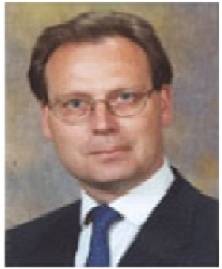Speaker : Prof Peter Lindstedt

Abstract :
Prof Peter Lindstedt studied at Chalmers Tekniska Högskola, Göteborg, Sweden, where he received a MEng in Chemical Engineering in 1980. At Imperial College London, Peter received a PhD from the Department of Chemical Engineering, where he also worked as a research associate. He then moved to Mechanical Engineering, where he has worked as a lecturer and reader. He was awarded the title Professor of Thermo fluids in 1999. Peter served as head of the Thermo fluids Division from 2000 to 2010, as Director of Research from 2003 to 2013 and as deputy head of Department from 2007. In 2013, he was elected Consul for the Faculty of Engineering and Business School. Peter has published over 100 peer reviewed archival journal and conference contributions. His invited lectures include a plenary on the Chemical Complexities of Flames at the 27th International Symposium on Combustion. He is the UK Director on the International Board of the Combustion Institute (2006 to 2018). He served on the Board of Directors of the Institute of Explosions and Reactive Systems from 2002 to 2006 and as associate editor for Combustion and Flame from 2000 - 2010. He is an editorial board member of Combustion Theory and Modelling and Progress in Energy and Combustion Science. He served as the Technical Program Co-Chair (with Ron Hanson, Stanford University) for the 30th International Symposium on Combustion that also celebrated the 50th Anniversary of the Combustion Institute. Peter serves (since 2002) on the program committee for the International Workshop on Turbulent Non-Premixed flames. Challenges in Sustainable Propulsion The contributions of the transportation sector to the total anthropogenic carbon dioxide emissions is around 28% with aircraft emissions contributing a few percent. However, the projected rapid aviation growth rate leaves little room for complacency. The Advisory Council for Aeronautics Research in Europe (ACARE) has set 2020 targets of a reduction of carbon dioxide by 50% (compared to emissions in 2000) and 80% for oxides of nitrogen. Other primary pollutants currently subject to regulation are carbon monoxide and unburned hydrocarbons with the next ICAO regulations targeting new standards on other major contributors such as soot aerosols. The demands on the automotive sector are similar. The combustion chambers of automotive and aeronautical engines feature physical and chemical phenomena that must be properly understood in order to achieve robust and efficient low-emission operation. Current computational tools do not embody sufficient detail to permit accurate design computations associated with such stringent demands and improved multi-physics based approaches are required. The talk will focus on the emergence of novel energy conversion modes leading to improved energy efficiency and the associated requirements on computational methods supporting the development of the next generation of low-emission engines. In this context, the ability to predict the inter-conversion of poly-aromatic hydrocarbons (PAHs) of different toxicities and emissions of fine carbon-based particles from engines are of increasing relevance. The complexity and variability of Diesel and aviation fuels leads to the need to formulate surrogate fuel blends for use in numerical simulations of practical engines. Such formulations are of increasing importance due to the emergence of alternative fuels and their impact on soot particle size distributions as well the potential for increased emissions of new pollutants such as aldehydes and ketones.



